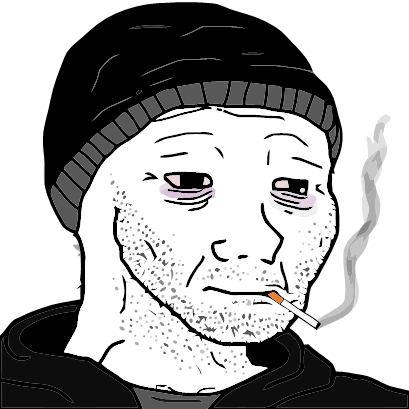

NATO can invade a little in winter, as a treat


NATO can invade a little in winter, as a treat



It says we hit the iceberg decades ago


Do you know this person or do you just act like a half coherent smug weirdo at random?


Thanks for that.
Dongping Han certainly has a negative view of Deng Xiaoping. Certainly more negative than I do. However, regardless of his line on Deng, his book is well sourced and provides a ton of on-the-ground experiences that I think are worthwhile for anyone interested in China’s revolution. Mobo Gao is also very anti-Deng, but most communists around here uphold his book for good reading on the cultural revolution, too. Michael Parenti has also called reform China revisionist, and I don’t think that invalidates his work.
I recommend checking out the book yourself, but if you’re really interested and you don’t have the time, I can go through and pull out where he’s sourcing his info and message them to you. I’m gonna check the info myself anyway because of the numbers you posted.
Just let me know.


The lesson learnt there: you cannot better people’s material conditions, and end poverty with ideological struggle, or isolationism.
The cultural revolution lead to a drastic increase in material conditions to the vast majority of the Chinese population. This can be tracked from education to food availability.
In fact, the rural collectives, working more autonomously than they do now, were able to build industry to a scale never seen before in China. The schools they built in rural areas, which previously went ignored by the party, raised literacy rates to near 90%. That’s up from around 30% previously.
The industrialization undertaken in these areas was SO successful that Deng’s government privatized them and built upon them to “develop productive forces” that were already being developed at previously unseen speeds.
I’m not saying that the reform era is revisionist or whatever. Clearly, the strategy has worked out incredibly in many ways (and failed in others), but the idea that the cultural revolution was some kind of economic disaster that stunted industrial production is false. It’s a myth that’s carted out as justification for the reforms (which, frankly, isn’t needed because the arguments for reform can stand on their own merit).
All of this and more can be found in Dongping Han’s “The Unknown Cultural Revolution”


This seems so fucking useful on the internet
There’s no tension in the top right one. They fuckin went for it


She expressed actually wanting advertisements



OP asked for a material explanation.
If you voted for Trump and support the wall and deportation, and you have a material explanation for that, then just post it.


The material basis is that the bourgeoisie benefits from enforcing strong borders. If there were no borders, then workers could move freely, and that would give them more power.
Nobody really wants to shut down immigration entirely, but they want to maintain strict control of it in order to maintain discipline in the labor force.


100%


Painting my nails was one of those things early on that was an immediate hit for me.
It’s been years now and I still feel like you do when I see them after I’ve forgotten.
I hope you can hold onto it, too~


We’re all subject the cultural norms of the society that we live in. Particularly with religious norms, maintaining them can be coercive.
But that doesn’t mean that burkas, in and of themselves, are regressive.
Shouldn’t the goal be to create a space that is free of coercion so people can actually choose to wear it if they want to? Outright banning them is just enforcing a different cultural norm.


Commies and fascists are the same thing because they do the violence. The reasons they do the violence is not relevant.
I, a good democrat, don’t do the violence. Those bodies that keep piling up in other (dirty, evil) countries during Democrat run governments are coincidental. All the funding I give to police departments totally aren’t related to the police blasting people in the streets daily. I know this because my ideology is totally not conservative.


Well, Russia isn’t fantastic
Petty assholes